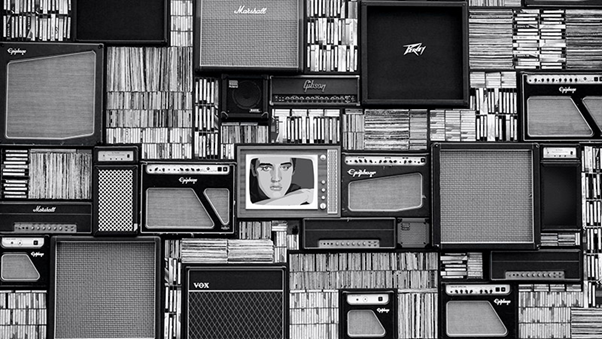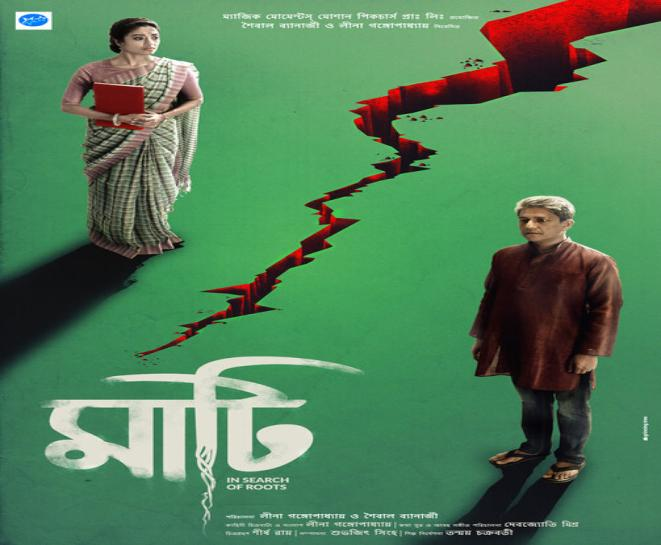Entertainment is The New Oil and All of Asia is The Middle East
Posted on : August 7, 2024Author : Annay De

K-pop or nuclear? Which is a greater weapon against North Korea? Following the recent North Korean defecation-filled balloon attack on South Korea, the latter retaliated by restarting their old tactic of blasting South Korean pop songs among other audios at the North Korean border, ending the 2018 treaty between the two. In a world where pop music fares as a weapon of psychological warfare against one of the most brutal military nations, it is imperative that we rethink the ‘data’ hegemony as it has been almost two decades since Clive Humby quoted “Data is the new oil”.

South Korea blasted their speakers as military retaliation several times, including in response to their soldiers getting maimed by mines in 2015 and criticising N.Korea’s bomb tests in 2016 (Photo by Korea Pool-Donga Daily via Getty Images) South Korea blasted their speakers as military retaliation several times, including in response to their soldiers getting maimed by mines in 2015 and criticising N.Korea’s bomb tests in 2016 (Photo by Korea Pool-Donga Daily via Getty Images) South Korea blasted their speakers as military retaliation several times, including in response to their soldiers getting maimed by mines in 2015 and criticising N.Korea’s bomb tests in 2016 (Photo by Korea Pool-Donga Daily via Getty Images)
Prologue
From the earliest days of human civilization, entertainment has been a vital part of our lives, evolving from simple storytelling and communal dances to sophisticated forms of art and media, shaping not just culture but also geopolitics. In ancient times, Egyptians gathered to watch religious pageants and dramas, while Greeks and Romans developed grand theatres and arenas. Greek tragedies and comedies explored complex political themes and social issues, often reflecting the democratic debates of the time. Roman gladiator games, held in massive amphitheatres like the Colosseum, not only entertained but also reinforced the emperor’s power and Rome’s military prowess, subtly shaping public perception and political loyalty. The mediaeval era brought travelling minstrels and morality plays, which were often used by the church and nobility to promote religious and social norms, maintaining control over the populace. The Renaissance saw the flourishing of theatre and music, epitomised by Shakespeare’s works, which both reflected and influenced the political intrigues and power struggles of the time. The Industrial Revolution and the Age of Enlightenment revolutionised entertainment with the printing press, public theatres, and the nascent film industry, allowing political ideas to spread rapidly through pamphlets, plays, and early films. The 20th century introduced radio, television, and Hollywood, making mass entertainment widely accessible and leading to the global music industry’s rise, with radio broadcasts and films often used for propaganda during wars. Come the digital age, entertainment transformed with the internet, streaming services, and social media platforms, allowing personalised and interactive experiences that have also impacted political movements and international relations. For instance, platforms like YouTube and Twitter have been instrumental in political campaigns and social movements globally. For centuries, civilizations have craved a single, essential commodity – a resource that fuels economies, ignites passions, and shapes the very fabric of society. In the bygone era, oil held this coveted position. But as the digital age dawns, a new contender has emerged – entertainment.
Unlike the tangible, finite nature of oil, entertainment thrives on intangibility and infinite possibility. Its growth potential, infinite. Netflix for example, in 1997, was a humble DVD-by-mail service. Today, it boasts over 220 million subscribers, surpassing traditional media giants in a story more thrilling than any blockbuster. This meteoric growth isn’t an anomaly; it’s a symptom of a global shift. Entertainment’s power lies in its ability to captivate. A 2020 study by McKinsey revealed that people now spend a staggering 1,200 hours per year consuming entertainment – a figure higher than ever before. This isn’t simply passive leisure; it’s a form of engagement that transcends borders and cultures. K-pop music, for instance, has transcended language barriers, turning South Korean bands into global superstars. Fortnite, a virtual world video game, hosted a record-breaking concert by musician Travis Scott in 2020, attended by over 27 million virtual avatars – a testament to the blurring lines between reality and entertainment.
The economic impact of this captive audience is undeniable. Media and entertainment is projected to be a $2.3 trillion dollar industry by 2023, surpassing even the mighty oil and gas sector. But entertainment’s influence goes beyond economic clout. It shapes trends, ignites social movements, and fosters a sense of shared global identity. The revered 2019 Korean drama “Parasite” sparked international conversations about wealth inequality. Documentaries like “Blackfish” have the power to influence public policy. Even seemingly frivolous content like reality TV shows can provide a platform for marginalised voices and redefine societal norms. Stories have the unique ability to bridge the empathy gap. A South Korean family, for instance, might never have considered the struggles of a refugee in Syria, until a powerful documentary sheds light on their plight. A young woman in Nigeria, yearning for a different life, can find solace and inspiration in the story of a self-made billionaire depicted in a biopic. Stories allow us to walk in another person’s shoes, fostering a deeper understanding of the human experience in all its complexities. A teenager in Mumbai can create a viral dance video that sets the world ablaze, while a group of friends in Rio de Janeiro can launch a comedy sketch that garners millions of views. This democratisation of storytelling fosters a sense of global community, where ideas and trends flow freely, unconstrained by geographical boundaries.
The economic impact of this storytelling revolution is undeniable, and as we live and breathe in the era of unprecedented media consumption and power, the global entertainment industry is undergoing a seismic shift. Asia is rapidly emerging as the dominant force exemplified by South Korea’s “Hallyu Wave,” India and China’s film industry, Japanese animation and comics, Middle Eastern football, F1 interests and so on.
The Asian Wave in Media and Entertainment
The idea of Asia as the new entertainment behemoth isn’t just about big-ticket sports and streaming giants. It’s a multi-layered, vibrant ecosystem brimming with unique experiences fuelling a passionate audience and generating serious cash.
Cricket, for instance, has found its epicentre in Asia. The 2023 Cricket World Cup final in India achieved a record-breaking viewership of over 2.1 billion people, according to ESPN. The Indian Premier League (IPL) has grown into the world’s most valuable sporting event brand, valued at $6.8 billion, as per the 2023 Duff & Phelps Brand Valuation Report. Similarly, Asia’s football market is thriving, with the Chinese Super League attracting global talents like Oscar and Hulk, and the 2023 AFC Asian Cup final drawing an audience exceeding 800 million viewers, reported by FIFA. Furthermore, with the arrival of stars like Ronaldo in Al Nasser, and major European clubs like PSG being owned by middle Eastern billionaires, Asia is also an upcoming name in club football which was majorly centred around Europe. The region’s passion for sports extends beyond cricket and football. With India’s Buddh Circuit being in talks of making itself back up on the Formula One calendar alongside other Asian venues like Bahrain, Saudi Arabia, Japan, Singapore, Asia’s growing interest in motorsports is evident. Even the rise of the Pro Kabaddi League in India and traditional sports like Sepak Takraw in Southeast Asia also highlights Asia’s diverse sporting interests and commercial success.
Beyond sports, Asia’s entertainment influence is profound. The South Korea’s K-Pop genre which first gained widespread recognition with Psy’s Gangnam Style more than a decade ago, achieved global acclaim with BTS becoming the first Korean act to top the Billboard 200 chart multiple times, generating billions in revenue. The film industry is another area where Asia shines. China’s box office became the world’s largest in 2020 and remains a formidable player, while India’s Bollywood continues to produce blockbusters that captivate global audiences.
Technological advancements have significantly contributed to Asia’s entertainment boom. Asian tech giants like Tencent and Alibaba are heavily investing in streaming platforms and digital content, making entertainment more accessible. Moreover, social media platforms like TikTok, originally from China, have become global phenomena, launching careers for musicians, comedians, and influencers, who benefit from substantial brand endorsements and advertising deals. Emerging entertainment frontiers like esports are also where Asia leads. Newzoo estimates that the global esports market will reach $1.6 billion by 2024, with a significant portion of revenue stemming from Asia. Competitive video gaming in countries like China and South Korea has given rise to powerhouse teams, dedicated esports cafes, and substantial revenue streams from tournaments and sponsorships.
Japan’s anime industry, with iconic studios like Studio Ghibli and Kyoto Animation, continues to captivate global audiences, while China’s animation sector is rapidly expanding. Theme parks such as Universal Studios Beijing and Shanghai Disney Resort are breaking attendance records, highlighting the appetite for immersive experiences. Asia’s entertainment success also lies in its ability to blend local content with global appeal. The region’s creators adeptly craft stories that resonate locally while possessing universal appeal, as seen in the popularity of manga like “One Piece,” which has sold over 523 million copies worldwide, becoming the second best-selling comic series in history. Japanese anime and manga, with global hits like “Naruto” and “Attack on Titan,” have created a massive international fan base. Japan’s annual Anime Expo in Los Angeles attracts over 100,000 attendees, highlighting the global appeal and influence of Japanese culture. These cultural exports not only generate significant economic benefits but also enhance Japan’s soft power and international standing. Such niche markets like cosplay culture, digital comics (webtoons), and light novels are flourishing, generating significant revenue and fostering dedicated communities. Live streaming platforms in China, such as Douyu and Huya, have created lucrative industries through virtual gifting, while short-form video platforms like Kuaishou and Likee are thriving.
Far Reaching Implications of the Asian Takeover
Economically, the surge in Asia’s entertainment industry contributes to substantial job creation, technological advancements, and foreign investment. Furthermore, the success of streaming platforms like Tencent Video and iQiyi, which have vast subscriber bases and produce original content, catalyses growth in related sectors such as advertising, and tourism (which is also widely promoted through short form video content on platforms such as Instagram and YouTube).
On the geopolitical front, cultural exports from Asia significantly enhance its soft power, enabling countries like South Korea, China, and India to wield greater influence in global affairs. For instance, China’s Belt and Road Initiative (BRI) has strategically included cultural exchanges and entertainment partnerships as part of its strategy to strengthen ties with participating countries. By 2020, China had signed 202 cultural cooperation agreements with 141 countries under the BRI framework, promoting Chinese culture and fostering goodwill. China’s expanding influence is also evident in the film industry, with events such as the Silk Road International Film Festival and Chinese Film Weeks held in various countries, showcasing Chinese films and fostering cultural appreciation and collaboration. India’s Bollywood film industry also plays a pivotal role in cultural and diplomatic engagement. Bollywood films enjoy immense popularity across Africa, the Middle East, and Central Asia. In Nigeria, for example, Indian films have a long-standing fan base, and Bollywood stars are household names. Bollywood’s reach extends to Russia and Central Asia, where Indian films have historically been well-received. The Indian government supports film festivals and cultural events, such as the International Indian Film Academy Awards held in various countries, to strengthen these cultural ties. These efforts help bridge cultural divides and enhance India’s soft power, fostering diplomatic relations and economic partnerships across diverse regions.
Furthermore, Asia’s entertainment leadership underscores the shift in global economic centres of gravity from the West to the East. This transition encourages Western businesses to collaborate with Asian firms, leading to increased interdependence and reshaping global economic networks. For example, Hollywood studios have increasingly sought co-production deals with Chinese companies to gain access to the lucrative Chinese market, and have casted more and more Indian actors to penetrate the wide and diverse audience base in India. As a result, Asia’s entertainment industry is not just reshaping cultural landscapes but is also intricately linked to broader economic and geopolitical transformations, influencing everything from trade relationships to diplomatic strategies.
Epilogue
The power of media, or more specifically entertainment have often been undermined or overshadowed by the power of assets like oil and military power. While the whole world was fighting over borders and reserves Asia continued to pursue greater reach through screens, the power to reach the very last person, the power to influence them, captivate them, fuel the dopamine in the greatest weapon of human beings, their brains. Now that Asian nations are mightier than ever in terms of media reach and control, and there’s geopolitical tension over media portrayal, it is not too wrong to say that entertainment is the new oil and this time, all of Asia is the Middle East.

(sourced from worldfinancialreview.com)
References:
- Castells, M. (2009). Communication Power. Oxford University Press.
- Nye, J. S. (2004). Soft Power: The Means to Success in World Politics. PublicAffairs.
- Kim, Y. (2020). “Hallyu 2.0: The New Korean Wave in the Creative Industry.” Journal of Korean Studies, 25(1), 34-52.
- Lee, S. (2019). “The Rise of K-Pop: A Look at South Korea’s Music Industry.” Entertainment Weekly, 45(3), 22-29.
- McKinsey & Company. (2020). The Future of Digital Media: Trends and Forecasts. McKinsey Global Institute.
- Newzoo. (2024). Global Esports Market Report. Newzoo.
- ESPN. (2023). “Record-Breaking Viewership for 2023 Cricket World Cup Final.” Retrieved from [ESPN website](https://www.espn.com).
- Duff & Phelps. (2023). Brand Valuation Report. Retrieved from [Duff & Phelp, now Kroll website](https://www.kroll.com).
- FIFA. (2023). “2023 AFC Asian Cup Final Draws Over 800 Million Viewers.” Retrieved from [FIFA website](https://www.fifa.com).
- “Parasite.” Directed by Bong Joon-ho, performances by Song Kang-ho and Lee Sun-kyun, CJ Entertainment, 2019.
- “Blackfish.” Directed by Gabriela Cowperthwaite, Magnolia Pictures, 2013.
- “Gangnam Style.” PSY, 2012.
- McKinsey & Company. (2020). “People Now Spend 1,200 Hours Per Year Consuming Entertainment.”
- International Indian Film Academy Awards. “Bollywood’s Cultural Impact.” Retrieved from [IIFA website](https://www.iifa.com).
- Newzoo. (2024). “Global Esports Market Will Reach $1.6 Billion by 2024.”
Annay De
Intern, Asia in Global Affairs
The views, thoughts, and opinions expressed in the text belong solely to the author, in his personal capacity. It does not reflect the policies and perspectives of Asia in Global Affairs.





Leave a Reply